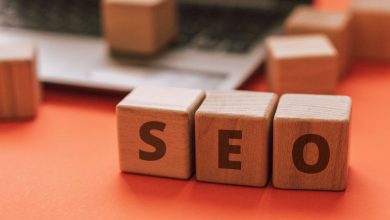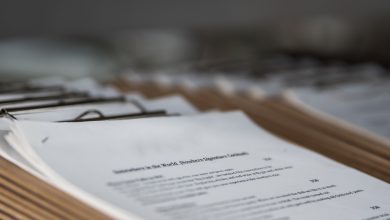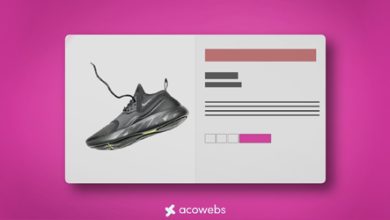Nofollow, sponsored, UGC attributes and their impact on SEO

Hello Readers! In September 2019, 14 years after introducing the no- follows link attribute, Google announced significant changes to its handling. using geekcode lab HTML Theme to give you SEO friendly Google has changed its approach to handling no-follow and introduced 2 new attributes for links – sponsored, UGC. These innovations, designed to help the search engine better understand the nature of links, caused confusion and a number of questions from webmasters. This article
How has real = “no-follow” changed with the introduction of new link attributes?
Currently, can use three attributes for links: “no-follow”, “sponsored”, and “UGC”, each of which reinforces a different meaning.
Major changes for outbound links
Google now treats each “no-follow” attribute as a hint rather than a directive for ranking purposes. That means that the search engine can ignore it or take it into account – at its discretion.
In crawling and indexing, Google will continue to ignore nofollow links for now, but this behaviour will change from March 1, 2020, when the search engine also begins to regard them as a hint rather than a directive.
Can combine new attributes. For example rel = “nofollow sponsored UGC”.
Purchased links must use either nofollow or sponsored (singly or together). Using the UGC attribute on these links may result in manual penalties.
At the same time, site owners should not necessarily change anything on their resources. Google has no advantages or penalties for using the new attributes.
However, those publishers who use nofollow to manage to crawl should rethink their strategy.
Why has Google changed its approach to handling nofollow?
Google wants to bring back the link graph.
The search engine introduced the nofollow attribute in 2005 to help site owners fight comment spam and questionable links in UGC content. Links to spam or low-quality sites can harm the site, and nofollow allows publishers to protect themselves from them.
Google also required nofollow for purchases and other fake links. If a search engine caught the site of linking schemes, it could impose manual sanctions on it.
This system generally worked; however, some major sites (such as Forbes and Wikipedia) added the nofollow attribute to all links – to avoid penalties or an inability to control User Generated Content (UGC) properly.
That made certain parts of the link graph less useful to Google. Why should links from verified Wikipedia authors not count? Perhaps Google could have a better understanding of the internet if only used nofollow for its intended purpose.
By treating nofollow as a clue, Google will be better able to build these signals into its algorithms.
This change could have a positive impact on noteworthy content creators. That is because a wider link graph bandwidth can have a stronger impact on rankings. (Though not much will change for most sites).
How do nofollow links affect rankings?
Until recently, SEOs believed that nofollow links worked like this:
- Not used for crawling and indexing purposes (Google does not follow them);
- Not used for ranking purposes, which has been verified by Google (although many SEOs have believed this is not the case for years).
There was a lot of discussion and controversy on the second point. Experimental evidence and anecdotal evidence suggests that Google has long viewed nofollow links as a potential ranking signal.
As of today, the search engine claims that new attributes, including sponsored and UGC, are handled like this:
- Still not used for crawling and indexing (however, this situation will change in the future);
- In rankings, all three attributes are officially considered “clues”. That means that Google can either take them into account or ignore them. Meanwhile, many SEOs believe that this approach has been around for quite some time with nofollow.
Starting March 1, 2020, these attributes will begin to be processed as hints in all processes – crawling, indexing, and ranking. Sometimes they will be counted, but in most cases, Google will ignore such links.
Do I need to make changes to the link attributes?
Image
In most cases, this is not necessary. Google does not require sites to make changes, and there is currently no benefit from using the new attributes. But who can add them at will?
There are several cases where adding new attributes might be justified:
- Site owners want to help Google better understand the sites they (or their invited authors) link to. For example, it would be helpful if sites like Wikipedia implemented these changes.
- Websites use nofollow to control crawling. For sites with extensive faceted navigation, nofollow is sometimes an effective tool to help prevent Google from wasting crawling budgets. It’s too early to tell if publishers using this approach should make any changes after Google starts treating nofollow as a crawl hint. However, it can be important to pay attention to this.
In general, if today the site uses nofollow correctly, SEO specialists do not need to recommend any changes to their clients. While sites are free to make these changes as they see fit, there are no ranking improvements or penalties to be expected.
However, the way Google uses these attributes can change over time. So it would be interesting to see in the future – through research and analytics – whether there will be a ranking benefit from using these attributes in a particular way.
What attributes should you use?
Suppose you choose to modify your nofollow links to be more specific. In that case, Google’s guidelines are very clear (How to provide Google with information about outbound links on your property), and we will not repeat them in detail here. In short, you have the following options to choose from:
- rel = “sponsored” – Links related to sponsored content or paid placements (usually called paid links) should be flagged as sponsored.
- rel = “UGC” – For links that point to user-generated content, such as comments or forum posts, it is recommended to use the UGC attribute.
- rel = “nofollow” – If the attributes described above do not work for you, and you do not want Google robots to click on links on your site, use the nofollow value.
We can also combine attributes. This means that: rel = “nofollow sponsored” is 100% valid.
Can I get penalties if I don’t flag paid links?
Yes, you can still get sanctions, and this is where it gets tricky.
Google recommends tagging paid/sponsored links using the “sponsored” or “nofollow” attribute, but not “UGC”.
The creates some confusion. What if users add paid or affiliate links to their posts or comments? Google has no clear guidelines for this.
Because of this, site owners are likely to continue to use the “nofollow” attribute for UGC content by default or “nofollow UGC”.
Can nofollow be used to control crawling and indexing?
The nofollow link attribute has always been a very bad way to prevent Google from indexing content, and nothing has changed in that regard.
If you need to prohibit content indexing, it is recommended to use one of the following methods.
Scanning, however, is a slightly different story. Many SEOs use nofollow on large sites to save crawl budget or prevent Google from crawling sub pages as part of faceted navigation.
From Google’s claims, you can still use nofollow this way. However, as of March 1, 2020, the search engine may choose to ignore this directive.
Therefore, SEOs using nofollow for this purpose will have to get creative to keep Google from crawling unwanted sections of their sites.
To summarize: do you need to implement new attributes?
While there are no obvious compelling reasons for this, this decision should be made by every SEO specialist for himself.
Given the initial confusion and lack of clear benefits, many publishers will undoubtedly wait for better information to emerge.
In any case, making these changes should not harm the site (as long as the paid links use the “nofollow” or “sponsored” attributes).
There was a lot of discussion and controversy on the second point. Experimental evidence and anecdotal evidence suggests that Google has long viewed nofollow links as a potential ranking signal.
In one of the last video meetings for webmasters, Google employee John Mueller confirmed that the search engine usually treats affiliate links as links with the nofollow attribute. That means that they do not convey link power and do not affect rankings.
While it is best practice to use rel = nofollow or rel = sponsored link attributes, Google can define affiliate links itself.
However, Google does not consider such links spam and does not regard them as a signal of poor website quality.




